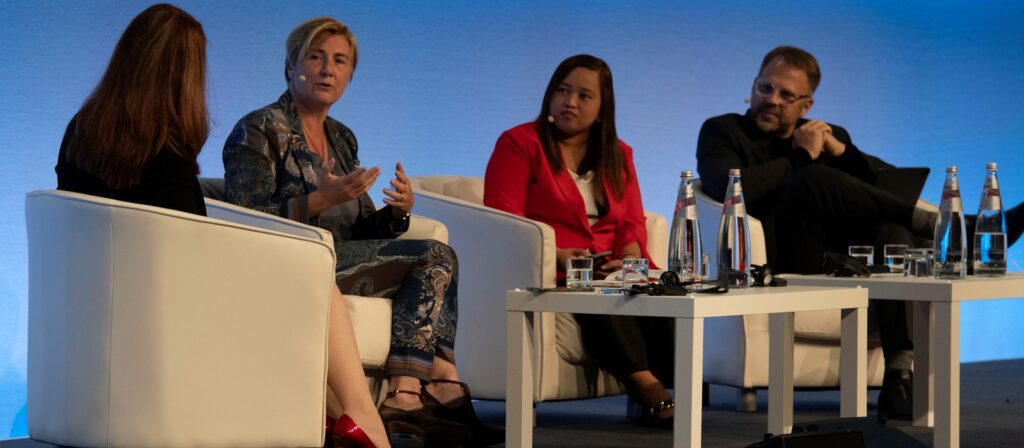The COVID-19 pandemic has been a catalyst for change, but there are other factors causing disruption, such as technology and the rate of change in the industry. Data, digital use of AI and robotics, and cloud computing as increasingly prevalent in the insurance industry. People topics, including changes in the workforce, are affecting the way work is done. Half of the workforce may be remote, and companies need to adapt to this new reality. Organisations need to keep up with these trends and embrace change to remain competitive in the industry.
The World Economic Forum predicts that nearly 400 million people will require reskilling globally by 2025. Furthermore, by 2030, it may be challenging to find talent in high demand skill areas. This situation is causing a hyper disruption everywhere, resulting in talent shortages. There is an under supply of skills, which leads to potentially missed revenue. As a result, many companies are spending a lot of money on learning to try and meet the skills gap. However, on average, training has a relatively low impact. The low impact of training is causing a challenge around filling jobs today. The ability to buy in talent will become increasingly challenging as well.
Organisations need to adopt a circular process for skills mapping in order to develop skills that meet present and future needs. This involves determining the size and shape of skills required, as well as moving people around within the organisation to meet the required skills map. The process needs to be more active and iterative, with an adaptable approach to developing skills. Career frameworks, which can have shelf lives of up to ten years, need to be managed more actively. The focus on talent strategy is essential in this process, with the aim of developing and retaining the right people to meet organizational goals. It is necessary to step back and think more deeply about talent strategy.
Retaining high-performing employees with scarce skills is a challenge. Poaching of talent is intense and getting more competitive in most markets. Talent can be acquired externally through buying or borrowing from vendors, but this may become more difficult in the future due to a reduction in the supply of talent relative to demand, particularly in finance roles, so it makes sense to do more with existing talent.
Beyond talent strategy, there is a lot of other people-related work that needs to happen to make an organisational strategy work. This includes leadership vision and alignment, having the right culture, specific behaviours that should be encouraged, and the right coaching and development for leaders. Having leaders regularly aligned behind a clear vision is key to achieving a successful talent strategy.
This presentation was delivered during the monthly ICMIF Member-to-Member Discussions for HR Directors. Please contact Mike Ashurst, Vice-President of Reinsurance and Professional Development, to find out more about the HR discussions.





